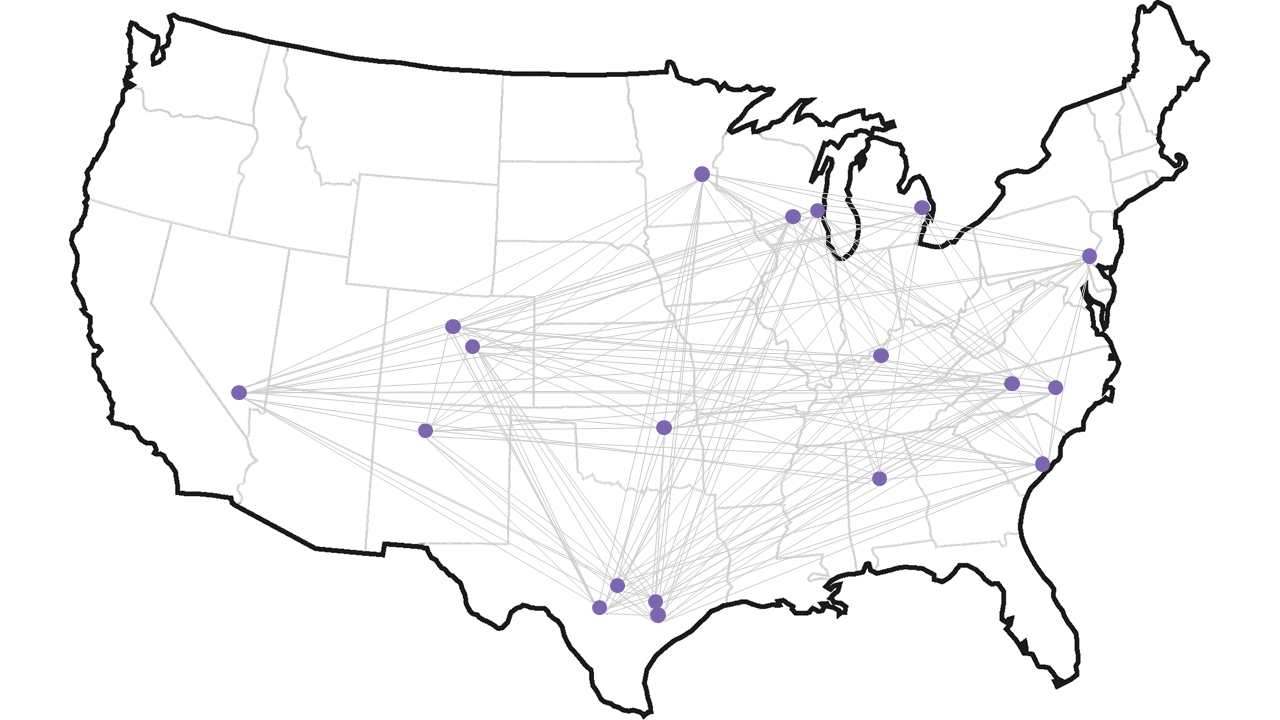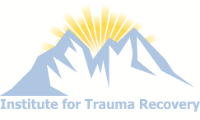Better Tomorrow Network

Large-Scale Research Networks
Large-scale research networks exist for many major health problems, such as heart attack, stroke, and cancer. These large-scale research networks are comprised of the leading care centers for these medical problems. At these centers, cutting-edge multicenter research studies are continuously performed and integrated into daily patient care. For example, cancer patients who come to the leading US cancer hospitals comprising the National Cancer Research Network get the best cancer treatment in the world based on today’s knowledge, while also participating in research studies to make the cancer care of tomorrow even better. As a result of the constant efforts of efforts like research networks like the National Cancer Research Network, the overall death rate from cancer fell by 23% between 1990 and 2012. In contrast, despite the fact that sexual assault happens to 1 in 5 women, no large-scale research networks exist that are dedicated to improving the lives of sexual assault survivors. Because of this, in the past 50 years, few advancements have been made to improve the lives of sexual assault survivors.
The Better Tomorrow Network
The Better Tomorrow Network is the first research network in the world dedicated to improving treatments and care for survivors of sexual assault. The mission of the Network is to remove barriers to the conduct of high-quality, large-scale research studies that improve the lives of sexual assault survivors. The goal of the Network is to greatly increase the number of studies of sexual assault survivors performed, so that the care of sexual assault survivors is steadily improved. The methods of the Network are to organize the largest sexual assault treatment centers in the US, together with researchers, stakeholders, and survivors, into a survivor-centered cooperative with a fair and transparent governance structure. The Network will support a broad range of interdisciplinary studies that focus on innovative approaches to prevention, early intervention, and treatment. The Network will also support studies focused on sexual assault-related nursing or medical practices, community advocacy, and legal outcomes. The long-term vision of the Network is to contribute to achieving the goal that one day no sexual assault survivor will experience chronic reductions in physical health, mental health, or quality of life due to sexual assault, and that perpetrators will be fairly brought to justice within a survivor-supporting system.
Leading Sexual Assault Survivor Treatment Centers
Leading sexual assault survivor treatment centers around the country comprise the Better Tomorrow Network:

These leading high-volume sites provide emergency care to >4,500 adult sexual assault survivors, >500 sexual assault survivors ages 13-to-17, and hundreds of child sexual assault survivors each year. Collectively, these sites provide the volume of patient care needed to complete well-powered studies within traditional funding timeframes and to support a number of ongoing research studies. In addition, as with networks of other major health problems, we know that sites within the Better Tomorrow network will expand and evolve over time.
Network Organization and Operation
Transparent, survivor-centered organization and governance are critical to maximizing the benefits of the Network for survivors. Our goal is to be an effective, impartial, patient-centered network that engages the best research for sexual assault survivors from researchers across the US.
The mission of the executive committee is to oversee the overall successful use and development of the Network. The Executive Committee will manage study infrastructure, provide oversight to ensure that individual studies are progressing well, and will assist individual study investigators with troubleshooting. The committee will also assist individual investigators with collecting pilot data and getting their studies started. The Executive Committee is comprised of two researchers, two sexual assault nurse examiners (SANEs), two sexual assault survivors, and two stakeholder funders.
The two researchers are Kate Walsh, PhD, Clinical Psychologist, University of Wisconsin, and Sam McLean, MD, Emergency Physician, University of North Carolina. Both these researchers bring extensive experience with longitudinal multisite studies of sexual assault survivors. The two SANEs are Kathy Bell MS, RN, SANE-A, SANE-P, DF-AFN and Megan Lechner DNP, APRN, CNS, SANE-A, SANE-P. Ms. Bell is a member and Past-President of the International Association of Forensic Nurses, and Dr. Lechner is Chief Operating Officer of the International Association for Forensic Nurses, the leading organization of frontline care providers for sexual assault survivors. Both Ms. Bell and Dr. Lechner have decades of experience providing SANE care in Tulsa, OK, and Colorado Springs, CO, respectively, and both have successfully conducted many research studies of sexual assault survivors at their sites.
Better Tomorrow Network Voting Members
Better Tomorrow Network voting members consist of Executive Committee members and leaders from each participating Better Tomorrow Network study site. Better Tomorrow Network membership will determine prioritization criteria for studies. Better Tomorrow Network membership will also determine governance via ratifying and revising network policies and operational methods. Better Tomorrow Network Sites consist of the leading, high volume sexual assault emergency care treatment centers in the US. Site staff time to perform specific research studies, and/or costs of additional research staff to perform specific studies, will be funded as part of study protocols. Subsets of individual Better Tomorrow Network sites will perform different studies depending on site and study interest/need/fit.
Use of Initial Network Funding
Initial Network funds will be used for three purposes:
- Support for a Network Data and Participant Coordinating Center. Core Network funding will support a central coordinating center core with study staff who consent study participants (via electronic consent), obtain participant medical records and study data, and perform follow-up evaluations. This system greatly reduces study costs and increases quality/study power, by avoiding duplication of study staff across sites and standardizing procedures. In addition, by engaging a number of high volume sites, studies can be performed much more quickly and efficiently, pilot data for new studies can quickly and successfully be obtained, and grant applications are more likely to be successful. As studies using the Network are funded by external grant sources, study staff in the core will be supported through these efforts, such that over time the core will be grant-funded and self-sustaining.
- Support for an annual one-day Better Tomorrow Network Conference. To reduce travel costs, this meeting will occur as part of the International Conference on Forensic Nursing Science and Practice, as leaders of most of the leading sexual assault emergency treatment centers already travel to that meeting. (The first annual meeting of the Better Tomorrow Network will occur September 28, 2022.) At these meetings, progress over the past year will be reviewed, plans for the coming year finalized, and any changes in governance structure or operations ratified.
- Executive committee member percent effort. Members of the Executive Committee will receive a percent effort coverage for their work activities. Funds for pilot studies will also be sought.
The Better Tomorrow Network builds on 15 years of progress
The network began in 2008, with a small donor-supported initial pilot study assessing the lives of 83 adult women sexual assault survivors during the year after sexual assault. This first pilot project resulted in several important discoveries, reported in publications from 2008-2011, including initial evidence that a range of physical and mental health challenges faced by sexual assault survivors, that acute severe pain is present in most sexual assault survivors (resulting in changes in the initial care of survivors), and discoveries regarding the biological mechanisms causing adverse health effects that have resulted in the development of new lines of treatment. These discoveries received a great deal of press at the time, and were highlighted by the NIH Director. A subsequent large-scale prospective study performed using the Network continues to yield important findings from 2014 to the present, including that sexual assault survivors experience a heavy burden of suffering during the year after assault, that sexual assault survivors perceive SANE care as high quality, that most women receiving emergency care after sexual assault experience substantial posttraumatic sequelae, but health care in the 6 weeks after assault is uncommon, unrelated to substantive differences in need, and limited in socially disadvantaged groups. In addition, this research found that lack of disclosure to primary care providers was common, even among women who did receive care. Other results included a description of the major challenges faced by sexual assault survivors in the year after an assault, in their own words. Other researchers and sites within the Better Tomorrow Network have a track record of performing the first large-scale randomized controlled trial demonstrating that a brief intervention can improve mental health and substance use outcomes after assault.
Summary
The outstanding research studies performed in the Network to date demonstrate that by working together, researchers, stakeholders, survivors, and leading sexual assault treatment centers can accomplish high-quality studies that improve the lives of sexual assault survivors. The goal of the Network is to now greatly accelerate the pace of the research, by expanding the Network and the number of studies being conducted. The sexual assault survivors who come for emergency care each day throughout the US, and whose suffering in the days, weeks, and months after assault has been so well-documented through work to date, are counting on us to do so!
